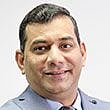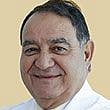Dubai Health Authority lifts partial ban on elective surgeries
Move comes as a welcome relief to health centres, dental, ENT procedures still banned

Dubai: Dubai Health Authority (DHA) has lifted the ban on all elective surgeries, meaning hospitals and day care centres can now treat patients for non-essential operations after a freeze of nearly a month and a half due to coronavirus restrictions.
Surgeries include corrective and therapeutic surgeries that can be carried out under topical, local and regional anesthesia.
A circular dated May 8 came into effect on May 10 and seeks to revise the previous circular dated March 25 that had completely banned all elective surgeries that include cosmetic and corrective surgeries.
Dr Atul Aundhekar, CEO of Avivo Group that owns about 44 health care facilities across UAE welcomed the revised circular as the first step to economic revival for health care facilties.
“We have already implemented this decision across many of our facilities,” he said.

A huge finacial relief for health care centres
Smaller hospitals have welcomed the decision as this has come as a huge financial relief for them. The general manager of a stand-alone health care facility in Dubai who did not want to be named said: “We were facing a great financial crunch as the expense on implementing the new COVID 19 protocol in terms of sanitsation, hygiene and Personal Protection Equipment was huge. Many of our affected staff was on paid leave. Now after being provided the permission to carry out some of the elective surgeries we will be able to ease off this financial crunch.”
Decision will bring relief in pain to patients
Dr Wadeh Shaker Al Judi, consultant and chair of surgery at Prime Hospital said the decision would help avert any elective surgeries turning critical after waiting for so long. Certain surgeries such as those for abdominal hernia correction are not emergency surgeries but the patient does undergo discomfort and if neglected for long can lead to stomach ulcers etc.

Dental and ENT still under bannned list
The circular further says that despite the easing of the ban all other protocols such mandatory temperature screenign of all those entering the facility, wearing of the PPE by the health care staff, a gap of at least 20 minutes between two surgeries to sanitise the place, continuous sterlisation of operation theatres, procedures to be carried out strictly by appointment to avoid any overcrowding, among other rules previously estbalished, have to be followed. Any surgery that has the aerosol impact (where spraying results in a mixture of gas which could include the virus and solid particles being suspended in air for a long period) such as dental and ENT surgeries continue to be banned.
Surgery under general anesthesia is allowed only in emergency cases and if a patient has to undergo GA, the COVID-19 swab test is mandatory.
Sign up for the Daily Briefing
Get the latest news and updates straight to your inbox







